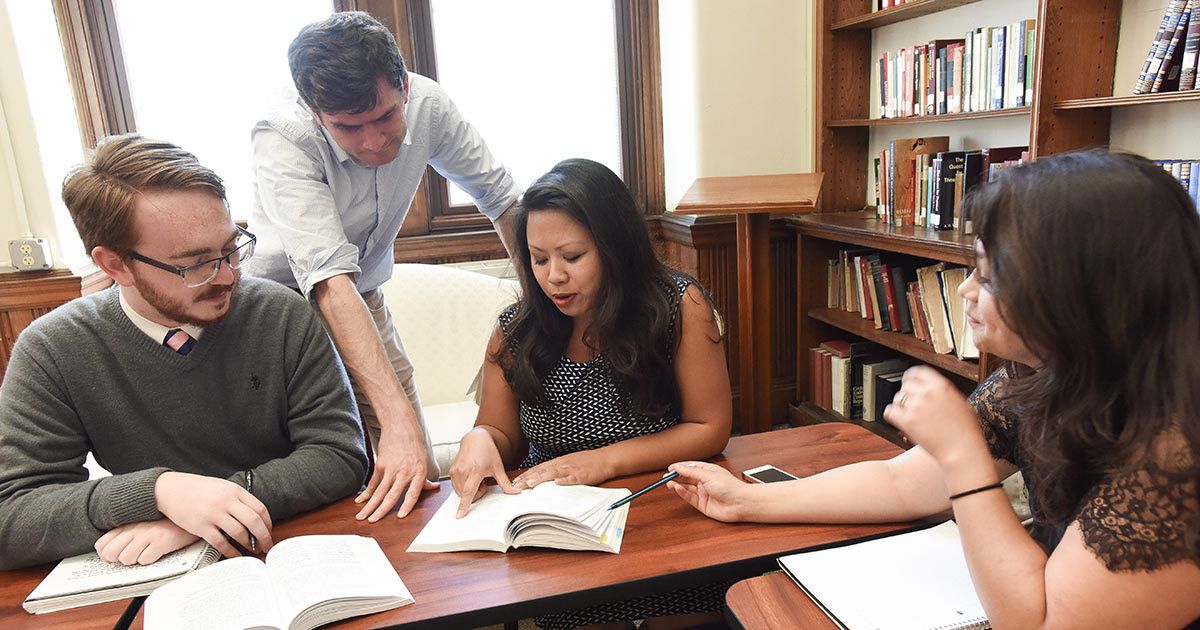
Reflections on a First Year as Department Chair, and More
It gives me great pleasure to greet the wider community of Catholic University’s Department of History.
This issue of the Department’s annual e-newsletter goes out as we’re already well into the 2019-2020 academic year. As in past issues, we want to take this opportunity to let you know about our students’ and faculty’s many achievements and milestones over the past twelve months, and also to highlight stories from the Department’s undergraduate and graduate alumni. This issue’s theme is “public history,” the ways that people trained in historical methods interpret and present the past to audiences beyond academia. We hope you’ll enjoy these stories about alumni who’ve managed museums and local historical societies, professional historians’ organizations, historic preservation departments in government, and oral-history projects for the U.S. military.
The rush of current events, unavoidable as ever in Washington, D.C., consistently reminds us of the value of studying history. The past few months alone have witnessed developments in politics, culture and society that cry out for historical comparison, analogy and the kind of patient understanding that only serious historical analysis can provide.
In our Department, we’re fortunate to have a faculty dedicated to the vivid teaching and the careful researching of history. I cannot list all the publications and prizes and conferences achieved in the past year; our faculty has been productive to extraordinary degree. What I can emphasize is the range of the teaching and scholarship that goes on under the umbrella of the history department, from digital mapping to medieval kingship, from medieval Islamic trade routes to the history of cross-border migration, from the challenges of post-Civil War Reconstruction to the politics of celebrity in twentieth-century Britain. On a daily basis, the faculty of the Department brings the past, in all its confounding variety, to life.
Our undergraduate majors and undergraduate students do the same in the classroom. They travel the world by studying abroad; they interrogate the world through internships here at home; they study the world in their classes; and in their senior theses they contribute something of original and lasting value to the world of scholarship.
And our graduate students have been no less active or successful in winning fellowships, participating in conferences and finding their way into print than our faculty have been. Many of them are also themselves teachers, contributing their erudition and enthusiasm to the Catholic University classrooms. We are in some sense a small community, but in aggregate we are a community of large-scale intellectual vitality.
The incomparable Edward Gibbon wrote that history “is, indeed, little more than the register of the crimes, follies, and misfortunes of mankind.” This is a debatable premise, for history is as much the register of the achievements, the wisdom and the good fortune of humankind. But wherever you fall of the question of crime versus achievement, folly versus wisdom and misfortune versus good fortune, I’m proud to say that one of the best places where these premises can be debated is our Department. We have our work cut out for us in academic year 2019-2020.
As always, we want to hear from you! Please take a moment to write to us and let us know about your news and accomplishments – we’d love to hear more about where your history degree has taken you. You can email us at history-dept@cua.edu .
Sincerely,
Michael Kimmage
